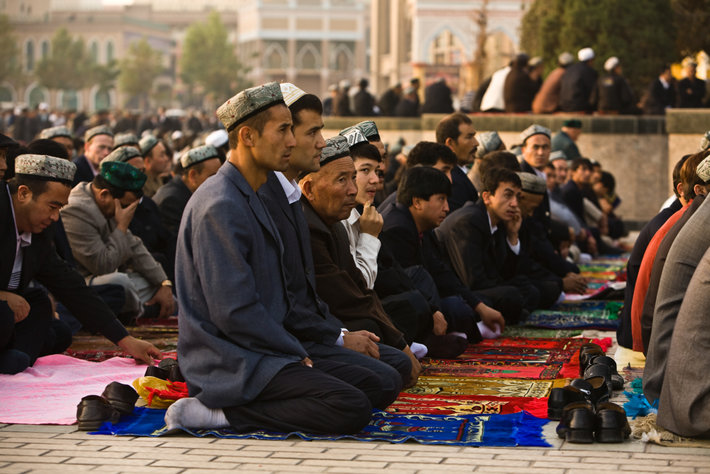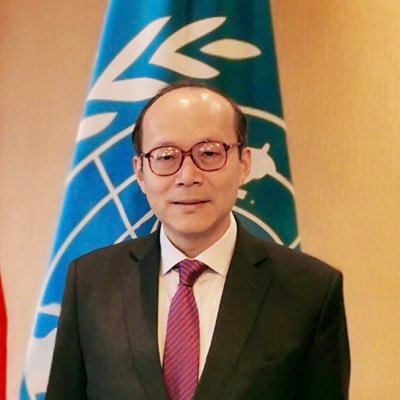U.N. Report Calls Out the Chinese Government’s B.S. about “Terrorism” in Xinjiang
On August 31, 2022, after a year-plus delay, criticism from the human rights community, and a Chinese government-run trip to China to “investigate” atrocities, the U.N. Office of the High Commissioner for Human Rights (OHCHR) issued its long-awaited report (“report” or “U.N. Xinjiang report”) about the Chinese government’s human rights violations in China’s predominately Muslim province of Xinjiang. With high drama, then-Human Rights Commissioner, Michelle Bachelet, published the report 13 minutes before she was to step down from her position.
Many have reported on the Chinese government’s extensive lobbying to prevent the report from seeing the light of day so the fact that it was published at all is significant. But according to Politico, the Chinese government was able to sufficiently water down the report’s conclusions (OHCHR provided China with a pre-publication draft). And there is much to be critical of: the report states that all these human rights violations “may” constitute crimes against humanity when they clearly do; it glosses over the use of surveillance that makes the whole of Xinjiang – even outside of the internment camps – feel like a prison; there is no mention of possible genocide even though it is obvious that the Chinese government is preventing Uyghur births, a covered act under the Genocide Convention (“imposing measures intended to prevent births within the group”); and the report’s section on family separation shockingly omits any mention of the forced placement of over 800,000 Uyghur children in state-run boarding schools, also a covered act under the Genocide Convention (“forcibly transferring children of the group to another group”).

Nevertheless, there are some strengths in the report that should not be ignored, most notably OHCHR’s complete rejection of the Chinese government’s statements that its actions in Xinjiang are necessary for national security. Instead, OHCHR condemned China’s Counterterrorism Law, enacted in 2015, and calls it out for criminalizing the practice of Islam in China. The Counterterrorism Law, and its corresponding implementing regulations, fail to abide by international human rights norms according to the report. The definition of terrorism in the law is so vague that it “leaves the potential that acts of legitimate protest, dissent and other human rights activities, or of genuine religious activity, can fall within the ambit of ‘terrorism’. . . .” OHCHR saves its strongest criticism for the law’s definition of extremism. First the report notes that under international and U.N. practices, only “violent extremism” is to be punished; the Counterterrorism Law fails to make that distinction. Instead, by defining extremism through “ideas,” “thoughts,” “clothing,” and “symbols,” it also punishes the mere practice of religion. But even worse than the vagueness of the law, is that its implementation is even more nebulous. In reviewing available Xinjiang judicial decisions that used the term “extremism,” OHCHR found that courts often labeled acts as extremist without explaining how those acts fulfilled the legal standards, leaving the OHCHR with the only conclusion that in China all Islamic religious behavior is “extreme.”
These might seem like small points but the Chinese government constantly bats away criticism of its human rights violations in Xinjiang as necessary to prevent terrorism. So countering these false assertions is imperative. Just look at the Chinese government’s response to the report. The majority of its 122-page response is about the need to stamp out terrorism in Xinjiang. But if OHCHR is now calling this b.s., other countries can no longer accept China’s excuses.
Another positive is the report’s clear command that member states not send Uyghurs and other Chinese Turkic Muslims back to China, even if the Chinese government demands that they do. Although the report makes no mention of genocide and only mentions crimes against humanity as “may” be happening, one has to wonder – if things weren’t so bad, why would OHCHR be telling countries not to send Uyghurs back to China? OHCHR repeatedly states that sending Uyghurs back would violate the prohibition against refoulement (the forcible return of refugees or asylum seekers to a country where they are liable to be subjected to persecution) which means something pretty bad is happening in Xinjiang even if OHCHR does not want to slap a label on it.
Finally, perhaps the report’s most significant contribution is that even with its watered-down conclusions, OHCHR has put out such damning facts concerning the arbitrary detention, sexual violence, torture, and forced birth control perpetrated against Uyghurs that the world can no longer look away. Expect this report to roil to the Human Rights Council (HCR) over the next few months, emboldening those countries who have long called on the HCR to do more and causing other countries that once might have defended China to no longer do so.

 On Facebook
On Facebook By Email
By Email 

